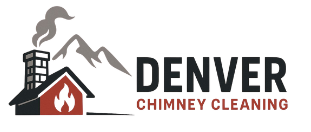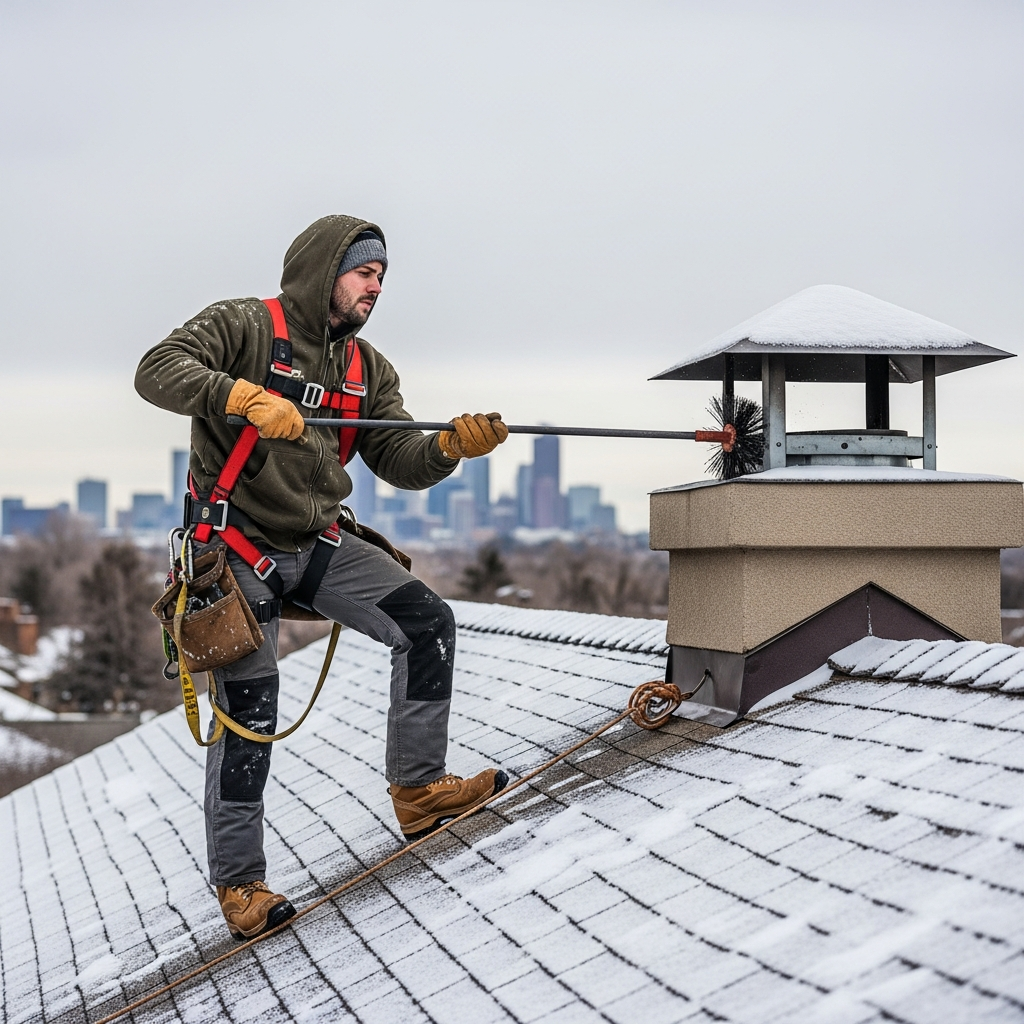Finding a licensed chimney inspection company in Denver can feel like sorting through snowflakes in a storm—there are plenty of options, and at first glance they can look the same. But once you know what to look for, the differences become clear. Licensing, insurance, safety culture, and the quality of reporting all shape your experience. As a local who has climbed steep Victorians in Baker and navigated rooftops in Central Park, I’ll share how to evaluate providers and what a professional process looks like from the first phone call to the final report. If you’re just getting started, browsing reputable local chimney inspection services will help you set expectations before anyone sets a ladder.
Let’s begin with what “licensed” means in context. In Denver, legitimate companies register to do business, carry appropriate insurance, and comply with safety regulations for roof work. Many also hold industry certifications that bring discipline to inspection methods and reporting. Licensing shows you that the business is recognized and accountable; certification shows you the people doing the work have invested in training and standards.
Why licensing and insurance matter
Chimney inspections involve roof access, and roofs always carry risk. Licensed companies with proper insurance protect both you and their team. Ask providers to confirm insurance and to explain how they approach safety on steep or complex roofs. You’re not being nosy—you’re making sure the people on your property will work deliberately and responsibly, which in turn allows for a slower, more thorough inspection. Responsible companies will happily answer these questions.
Beyond safety, licensing signals a level of professionalism. It tells you there is a real office to call, documented procedures, and a team that intends to be around to support you after the report is delivered. In an industry where seasonal demand spikes, that continuity is valuable.
What a professional inspection looks like in Denver
From a homeowner’s perspective, the best inspections feel calm and methodical. The appointment starts with a conversation at your hearth—how often you use the fireplace, whether there have been odors or smoke spillage, and any history you know of. Then the inspector observes the exterior from the ground, sets up safe roof access, and evaluates the crown, cap, and flashing. Interior work includes camera scanning of the flue, careful observation of the smoke chamber and damper, and a look at the firebox and surrounding materials.
Denver homes introduce unique twists: rooftop decks, parapets, solar arrays, and tight lot lines that restrict ladder placement. Licensed companies plan for these realities. They bring the right ladders, fall protection, and patience to move slowly around architectural features. That care shows in the final report, which should include photos and clear explanations rather than vague notes.
How to evaluate companies before you book
When you speak with a provider, listen for clarity. Do they explain the inspection level they recommend and why? Do they describe what deliverables you will receive—photos, video, and a written report with prioritized recommendations? How do they handle weather delays? The answers reveal whether the company treats inspections as a disciplined process rather than a quick look.
Ask about experience with your home’s era and type. A 1920s brick bungalow with a masonry fireplace brings different questions than a modern townhouse with a factory-built system. The right company can discuss both comfortably and explain how their approach changes to suit the system.
Report quality as the differentiator
Photos and clear language are the backbone of a useful report. For masonry systems, look for images of the crown, cap, mortar joints, and interior tile junctions. For factory-built systems, the report should document the chase cover, terminations, supports, and seams. Each observation should be paired with an explanation: why it matters in Denver’s climate, what risks it poses, and what steps are appropriate to restore or maintain safe function.
Licensed companies tend to standardize reporting so that homeowners, buyers, and contractors can rely on the same format and level of detail. That predictability pays off when you need to plan work or coordinate with other professionals.
Scheduling, seasonality, and weather
Fall is famously busy, but Denver’s spring and summer seasons are excellent for chimney inspections. Roofs are safer, weather windows are larger, and any recommended maintenance can be completed before the first cold snap. Licensed companies plan around weather and will reschedule when wind, lightning, or slick roofs make access unsafe. That caution is a quality marker, not a delay tactic. It protects workers and ensures your inspection is complete.
In winter, patience pays. An interior review can proceed while roof access is deferred, and a follow-up completes the exterior observations when conditions allow. Licensed providers communicate these limitations openly and document them in the report.
Local housing styles and how they shape inspection
From Cheesman Park’s turn-of-the-century masonry to the flat roofs and parapets of newer infill projects, Denver architecture affects inspection strategy. Steep gables concentrate wind on the leeward side of a chimney, where flashing can lift. Parapets collect snow, driving meltwater against crowns. Rooftop decks can alter airflow around terminations. Licensed companies that work here every day know these patterns and adjust their approach, ensuring mid-span flue sections and rooftop interfaces get the attention they deserve.
What to expect after the inspection
A strong provider schedules time to review findings with you, then delivers a written report with images and recommendations. The best reports read like a guided tour: here’s what we saw, here’s why it matters in Denver’s climate, and here are reasonable next steps. If follow-up is needed—perhaps to recheck a condition after snow melts or after a minor repair—the company outlines a plan and timeline. This follow-through is one of the clearest signs that you chose well.
Questions to ask before hiring
Ask how the company approaches safety on steep roofs, what inspection level they recommend for your situation, and what deliverables you will receive. Inquire about experience with both masonry and factory-built systems. Ask how they handle weather-related delays, and whether they can share a sample report (with personal details removed). The answers will quickly separate disciplined operators from those who treat inspections as a quick look.
Red flags to watch for
Be cautious if a provider downplays roof access, dismisses the need for interior camera work on tall flues, or offers vague verbal summaries instead of a documented report. Another warning sign is resistance to discussing safety gear or insurance. Professional companies are proud of their safety culture and happy to explain how they protect your home and their crew.
Value beyond the appointment
A good inspection does more than check a box; it gives you a plan. In a city with strong sun, dramatic temperature swings, and periodic wind events, small flaws can grow quickly. Licensed companies provide timely documentation you can reference later, whether you are planning maintenance, selling the home, or simply wanting assurance that your fireplace is ready for the first cold evening.
Frequently asked questions about hiring licensed inspectors in Denver
Homeowners often ask how to verify that a company is licensed, what level of inspection is appropriate for a sale, and how long appointments take. The simplest path is to ask direct questions, request sample reports, and listen for transparency. Professionalism is audible long before anyone steps onto your roof.
How can I confirm that a company is properly licensed and insured?
Ask the provider for proof of business registration and insurance. Professional companies expect this question and can provide documentation promptly. You can also ask about safety protocols for roof access; the clarity of their answer is a good sign of their overall discipline.
What should I expect from the inspection report?
Expect clear photos, interior scan images, and plain-language explanations of observations. Recommendations should be prioritized by safety and function, with any limitations due to weather or access noted. A strong report gives you confidence and a plan.
Do licensed companies handle both masonry and factory-built systems?
Many do, and they should be able to explain the differences in approach. For masonry, attention centers on crowns, mortar, and clay tile joints. For factory-built systems, the focus includes chase covers, supports, seams, and terminations according to manufacturer instructions.
How do weather and roof conditions affect scheduling?
Licensed providers watch weather windows closely and reschedule when conditions are unsafe. Interior portions may proceed while roof access is deferred, with a follow-up scheduled to finish exterior observations. This approach keeps the process thorough and safe.
Will I be able to discuss findings in person?
Yes. A hallmark of professional service is a post-inspection conversation that previews findings, followed by a written report. Clear communication is as important as careful inspection work, especially in Denver’s varied housing stock where context matters.
When you are ready to move forward with a careful, standards-aligned review of your system, choose a licensed team that values safety, documentation, and clear communication. You can begin your search by exploring local chimney inspection services and then schedule with confidence, knowing you will receive a thoughtful, photo-rich report tailored to Denver’s climate and architecture.




